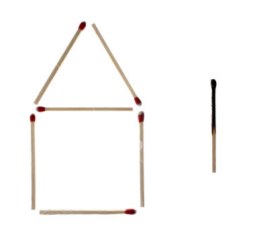Considering the Reverse Offer
With continuous days-on-market numbers getting higher for many (but not all) homes in Silicon Valley, agents know they need to do a little extra to generate interest for a motivated seller --- especially in areas and quartiles where inventory is high.
The technique goes by several monikers and it can be the difference between being a motivated seller and a motivating seller. Some call it a "reverse offer", others use the term "preemptive offer", or even "seller-initiated offer". In any case, the technique is the same: the listing agent draws up a purchase contract that specifies terms that the seller will accept and gives it to one or more buyers.
The contract is the same one that a buyer's agent would write up when making an offer, except written by the seller. All a potential buyer needs to do is sign on the proverbial dotted line.
Most of the time, reverse offers are used to open a line of communication, hoping to create competitive a competitive situation between multiple buyers, or to attract the attention of one buyer deciding between several properties. But there are key considerations when for both buyers and sellers when the seller writes a reverse offer.
Making an Offer vs. "Make Us an Offer"
Sellers clearly benefit in a number of ways when they receive offers. The seller gets the offer itself and the ever-important line of communication which can lead to better terms for both parties.
More importantly to the seller, that offer represents someone's tangible interest, which can be used to create a bandwagon effect leading to a competitive offer situation.
All agents know how to leverage these benefits, so they often encourage buyers to "make us an offer". So why would a seller choose to do the opposite and make a reverse offer? Here are some reasons why:
1) Generating attention. Reverse offers are usually made at a lower figure than list. Buyers are generally both surprised when they receive a contract from a seller, and curious about the lower number.
2) Testing the waters. The lower number included in a reverse offer is less public than a reduction published in the MLS, but gets one-on-one feedback about the seller's terms.
3) Encouraging action. Buyers who aren't on a definite timeframe may take their time evaluating options. A reverse offer provides a way to quickly gauge a buyer's interest and seriousness in a home, provided the offer expires after a set period.
Reverse Offer Expiration
When making reverse offers, it's important for sellers to keep in mind that, once the offer is sent, it cannot be revoked unilaterally.
The offer expires at a date written into the contract. If there isn't a date, the contract is considered an open offer. The contract is initiated when buyer delivers their acceptance of the offer --- so a better offer coming in the day after a countersigned purchase contract can't be accepted.
Buyers and Reverse Offers
I've never met a buyer who has been unhappy to receive a reverse offer. Are they surprised? Usually. Will they listen? Most always. The reason is that when clients receive reverse offers, they've receive some beneficial information from it. Here are some key items:
1) Clarity on Acceptable Terms. You can ask the seller questions about what they're looking for, but once their terms presented on paper, you have the minimum acceptable numbers for contract elements like contingency periods, days until closing, down payment, and deposit. Those terms may be better than what a buyer would offer themselves: because these terms are often used by sellers to determine how strong a buyer is, buyers will often choose the highest and lowest numbers to convey their financial ability.
2) Motivated Seller. The offer tells my clients that they're working with a seller who is interested in completing a transaction, as opposed to waiting for a target number. They may be motivated in the sense that they need or want a transaction to complete quickly, or they may be motivated because of something about the buyer --- perceived reliability, things in common, and other factors often affect how quickly a transaction can go.
3) Pricing Flexibility. A reverse offer wouldn't be worth much if its number were the same as list and it sometimes has additional terms that are worth money, such as a more expensive home warranty than my clients would have asked for, or agreement to help fund closing costs.
Buyers should be aware that the reverse offer figure often isn't the "best" number. While the convention is for contract terms to remain private, agents know that information, once published, can travel freely. At that point, the seller's bargaining position may be weakened with a number of interested parties if the number is low enough.
The intention is usually that the offer be good enough to open that all-important line of communication, at which point negotiations can continue.

